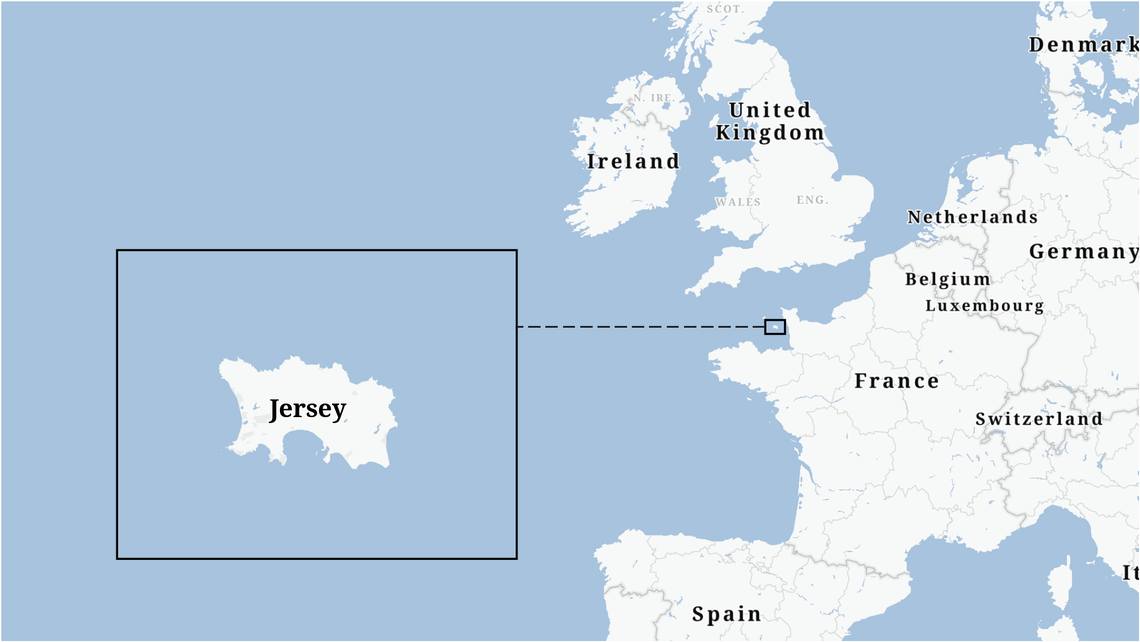Island of Jersey keeps secrets of the rich and powerful
Leah McGrath Goodman
Miami Herald
June 15, 2022
The namesake of New Jersey, the five-by-nine-mile island of Jersey is located in the English Channel off the coast of France and is a so-called “peculiar possession” of the British Crown. Neither a part of the United Kingdom nor the European Union, it is accountable to the UK Queen but governs itself.
Jersey’s unique set-up means that while it receives the protection of the Crown and the UK’s international treaties and compacts it has its own constitutional rights dating back to 1204. The arrangement gives Jersey the ability to run its own parliament, courts, policing, regulatory and financial systems separate from the UK. It even prints its own currency, the Jersey pound, which is pegged to the British pound and stamped with the face of the Queen. (This month, Jersey was covered with flags and other decorations, called “bunting,” in celebration of the Queen’s Platinum Jubilee, marking her 70th anniversary as monarch.)
Jersey’s unusual protections and freedoms have allowed it to create a popular tax haven — the island’s officials prefer the term “financial center” — catering to the UK, Europe and, increasingly, the Middle East, Asia and Africa.
Offshore companies registered in Jersey have been linked to the U.S. savings and loan crisis of the 1980s, Middle East arms deals, major drug seizures and busts, and the Goldman Sachs deal that made Wall Street hedge funder John Paulson billions, but forced the bank to pay a half-billion-dollar settlement to the Securities and Exchange Commission over claims it misled investors.
And it was home to La Hougue, the trust the Maxwells used to conduct various financial activities. La Hougue was headquartered at St. John’s Manor, the iconic, 16th-century home of Canadian lawyer John Dick, which was purchased by a trust belonging to Dick’s children in 1980. One of the perks of the 58-acre estate was that it came with a noble title: Dick became the Seigneur of St. John — literally, the lord of the manor.

The La Hougue files were stashed in 333 bank boxes discovered by Dick’s daughter, Tanya Dick-Stock, and her husband Dick Stock, in an indoor squash court at the manor. The files included pages from “The Complete Guide to Offshore Money Havens,” a book by Jerome Schneider, explaining how to set up a “one-person operation” to avoid paying taxes and how, “once you get enough depositors, you can begin issuing letters of credit and financial guarantees,” such as “back-to-back loans” and assign “whatever interest rate the free market will allow.” A number of the trust’s loans, including to the Maxwells, had interest rates as high as 24%.
Trusts are secretive financial tools that often use a custodian to act as a third party in transactions, such as buying or selling property and assets on behalf of the true owner or beneficiary. By design, trusts like La Hougue make it hard for creditors and even law enforcement or regulators to follow the money.
Dick originally founded La Hougue to manage his real estate assets, but the financial company’s services grew to include the fabrication and forgery of documents; the creation of dummy accounts; the concealment of clients’ identities; and a litany of techniques for hiding high-end clients’ money offshore. Dick denies any wrongdoing and says that company director Richard Wigley was behind the fraudulent activities. Wigley has said in court depositions that Dick, the beneficial owner of La Hougue, controlled the trust’s activities.
Jersey police seized the La Hougue documents, but a full decade after their discovery no criminal charges, prosecutions, or regulatory penalties have been brought by Jersey’s authorities.
In addition to dubious financial schemes, Jersey has more recently been in the headlines for crimes against children committed on the island by powerful people. A UK judge in 2017 warned that children in Jersey may not be safe, after an inquiry revealed hundreds of children were physically and sexually abused on the island for at least 70 years. Police excavated the teeth of children, aged 6 to 12 years old and other juvenile remains under one of Jersey’s government-run children’s homes, Haut de la Garenne, and more than 150 victims came forward from around the world to allege abuse. The probe ended in 2009, amid much controversy, with Jersey’s police chief alleging he was ousted due to Jersey’s secrecy culture and the new police leadership reporting they would name no murder suspects, as “no people are reported missing.”
